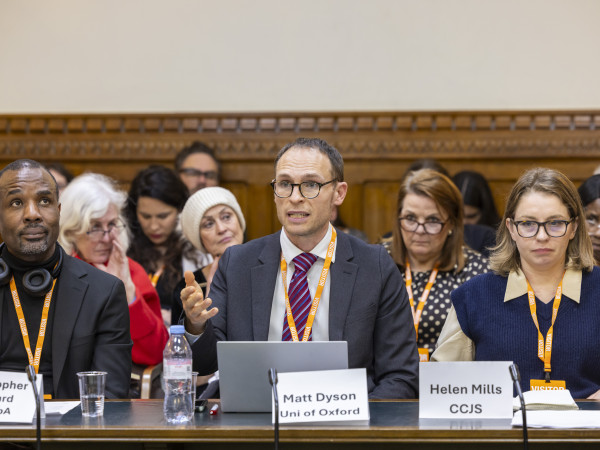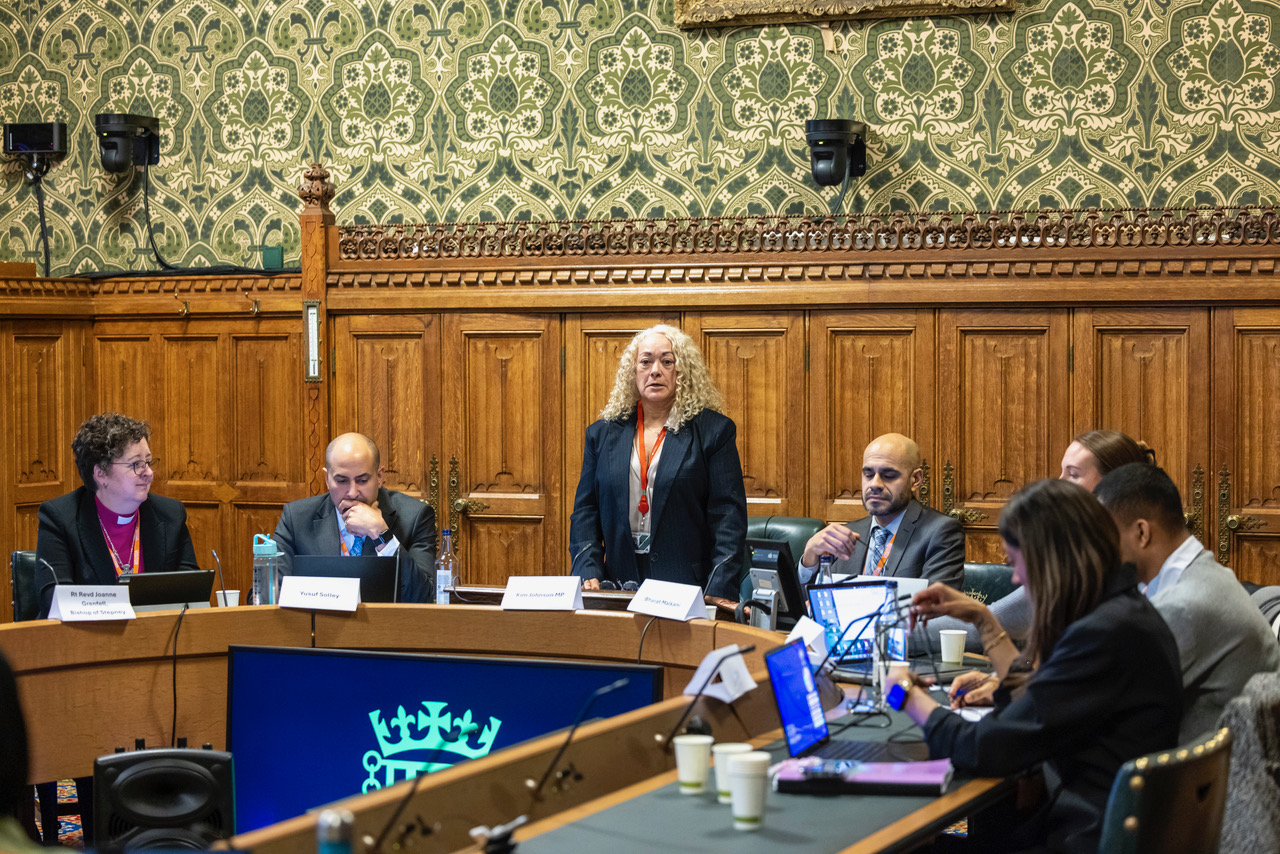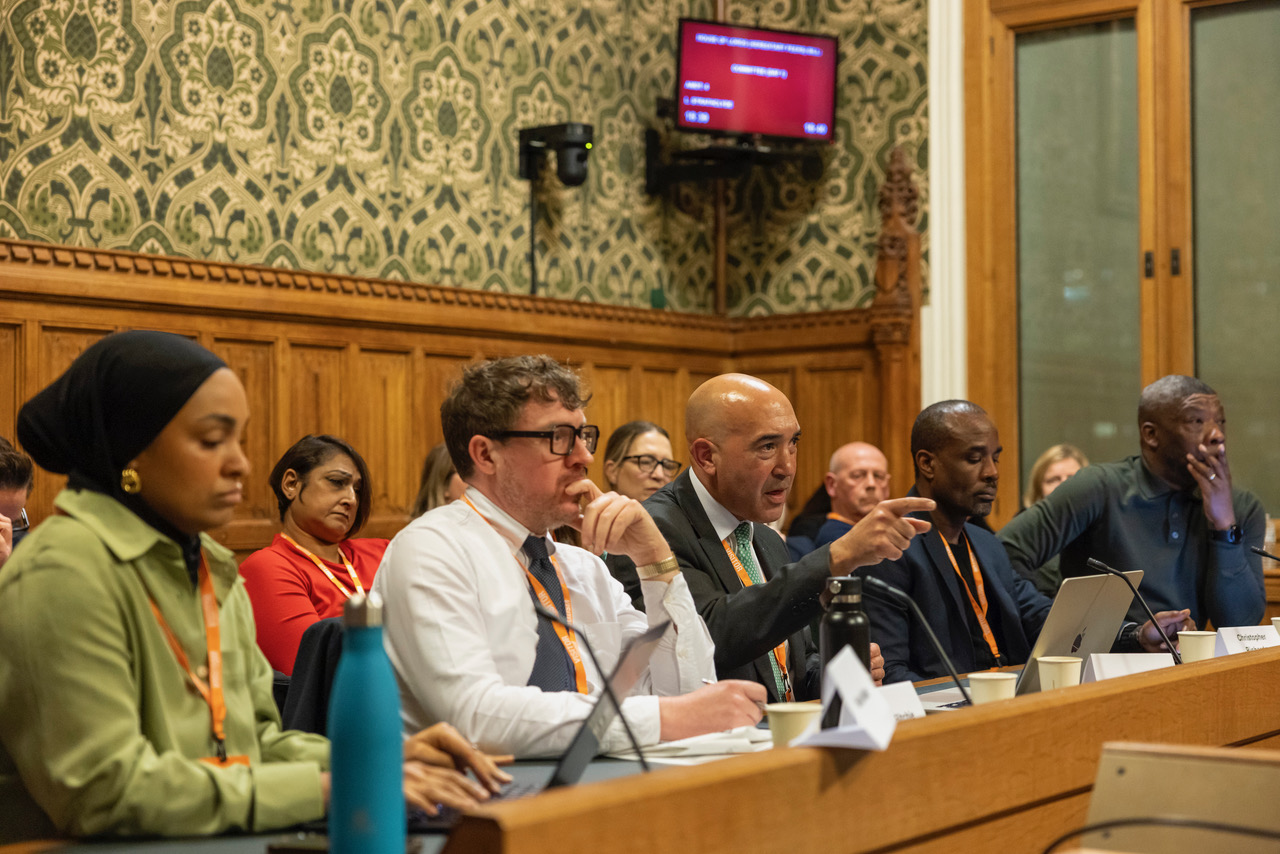
Centre for Crime and Justice Studies' Helen Mills was one of six witnesses who gave evidence at the first sitting.
 Launched in November 2024 by Labour MP Kim Johnson, a Joint Enterprise Westminster Commission is conducting a series of hearings on Joint Enterprise Laws.
Launched in November 2024 by Labour MP Kim Johnson, a Joint Enterprise Westminster Commission is conducting a series of hearings on Joint Enterprise Laws.
Joint Enterprise (JE) laws, which allow for multiple people to be prosecuted for the same crime, have been questioned due to their ambiguity and risk of overcriminalisation.
Co-chaired by Dr Louise Hewitt and Dr Bharat Malkani, the Commission is calling on witnesses and inviting written submissions from those with experience and knowledge of the policy and practice of JE. There have so far been two hearings, held on 11 February and 3 March.
Centre for Crime and Justice Studies' Head of Programmes Helen Mills gave evidence at the first sitting, reporting that there seemed to be a broad consensus on the need for clearer guidelines around JE. She states:
It was great to be part of an important opportunity to share our work on Joint Enterprise with the Committee. We welcome the Committee’s work and ambition to hear from a wide range of sources about how Joint Enterprise laws are working.
The first hearing was opened by Labour MP Kim Johnson and Labour peer Lord Woodley. Other witness called to give evidence included Matt Dyson (University of Oxford), Howard Gough and Julius Capon (Crown Prosecution Service) Christopher Richard (lived experience of JE), and Clea Topolski (a defence barrister in recent JE case).

At the Commission’s second hearing, Nisha Waller, author of The Legal Dragnet report on Joint Enterprise, gave evidence based on her research. Waller's evidence focused on the role of race in JE laws, highlighting concerns over possible biases in how JE prosecutions are initiated, particularly in communities already overrepresented in the criminal justice system.
The Commission’s report is due to come out early 2026.